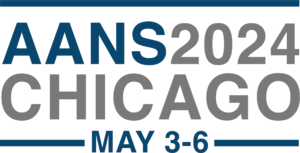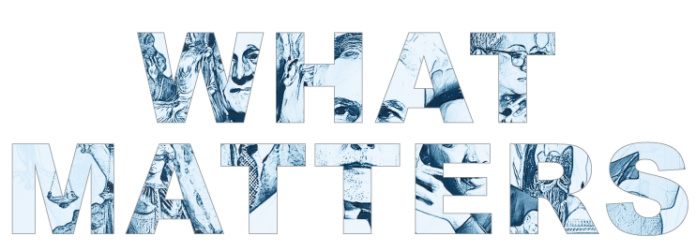The theme of the 2024 American Association of Neurological Surgeons (AANS) Annual Scientific Meeting is—“What Matters”—a phrase intended to simultaneously represent a question, a statement and a challenge.
This theme means a lot to me personally as I, like many of you, am deeply concerned about growing disharmony, and sometimes outright acrimony, in current society. Lately, I’ve been thinking a lot about how I might, even in a limited way as a single individual, start to positively influence the trajectory of our collective dialogue, and perhaps even our collective progress.
While I was considering that issue several months ago, I was asked to participate in the development of a grant related to the creation of an interdisciplinary center to “grow a new generation of experts who are empowered to embed neuroscience and its implications in a societal context.” I immediately regarded this idea to be remarkably intriguing, and the subsequent planning process caused me to reconsider my appropriate role—and our appropriate roles—in the broader fabric of modern civilization.
Being a physician, I initially reflected on this issue from a medical perspective and I found it convenient to imagine society as a patient. From that viewpoint, I came to believe that the health of that patient, of society, is dependent on its ability to protect the interests of its most vulnerable, to balance personal agency and liberty with the common good, to create equal opportunities for all, and to recognize and promote basic human rights, importantly including the universal right to essential healthcare.
I furthermore came to believe that such societal health is largely dependent, perhaps solely dependent, on the maintenance of the cognitive, psychological, sensory/motor and communication health of its citizens, and that society in turn—particularly a society that is creating technological innovation at breathtaking speed—exerts profound effects back on human neurophysiology.
All of this considered my friends we surely have to conclude that we, as neuro-clinicians, as neuroscientists, and as thoughtful, caring professionals who have dedicated ourselves to the art and science of medicine, have as much and likely far greater potential to improve, and preserve, the health and well-being of individuals, and of society, as any of its citizens. That’s simultaneously a tremendous opportunity, and an awesome responsibility.
 Therefore, it’s never been more important for us to contemplate, at this moment in history, what matters. What constitutes the common good? What values and rights do we and our fellow citizens universally hold dear and are willing to defend and promote? How do or should those considerations influence our priorities and our actions? How, friends, do they frame our fundamental responsibilities, our proper role in society? To me this is profound and important stuff.
Therefore, it’s never been more important for us to contemplate, at this moment in history, what matters. What constitutes the common good? What values and rights do we and our fellow citizens universally hold dear and are willing to defend and promote? How do or should those considerations influence our priorities and our actions? How, friends, do they frame our fundamental responsibilities, our proper role in society? To me this is profound and important stuff.
To my colleagues who might suggest that we as clinicians and clinician scientists should focus exclusively on patient care and divorce ourselves from such discourse, I respectfully disagree. I disagree precisely because we as neuroscientists, as what Ann R. Stroink, MD, FAANS (2022-2023 AANS president) so rightly and eloquently expressed in her presidential address—societal advocates—simply do not have the luxury at this stage in the evolution of humankind, particularly given our unique place in that evolution, to disengage from conversations of such consequence.
And so friends, I ask you to start considering these issues in the coming year: What matters to you? To your friends, to your patients, to your professional associates, to the individuals in your communities large and small? What should matter, to us all?
In the coming months, we’ll attempt to facilitate a global, specialty-wide dialogue on this topic. Through that and other efforts, we hope to achieve in Chicago, the corporate home of our organization and a city symbolic of both strife and progress, collective wisdom in the form of enhanced personal awareness, and shared understanding, about our proper place and roles in the modern world.
Colleagues, thank you for your attention, thank you for the opportunity to serve this great organization and our remarkable specialty, and thanks for everything you do.
Your actions, every day, matter.
I look forward to seeing you in Chicago.









